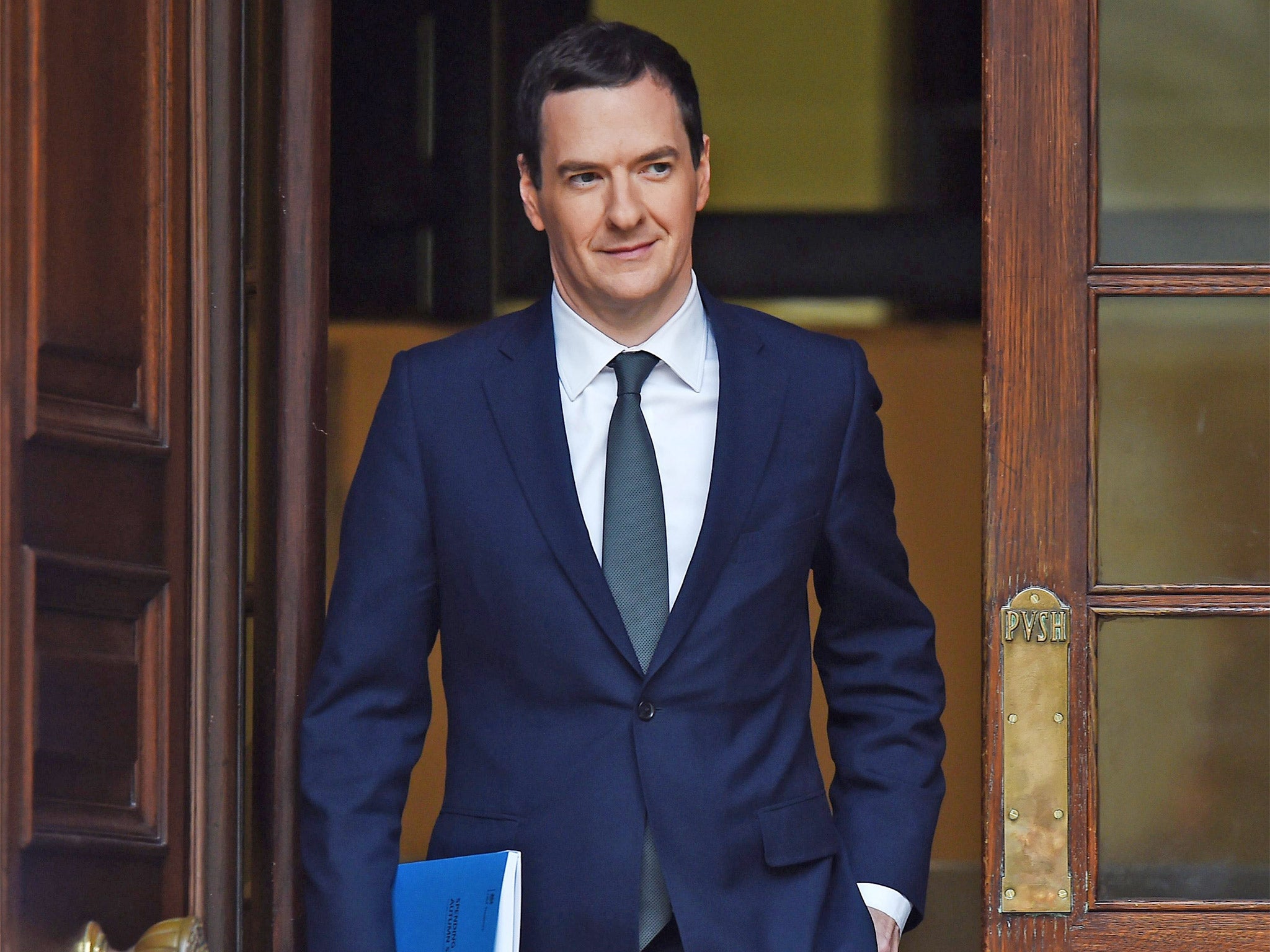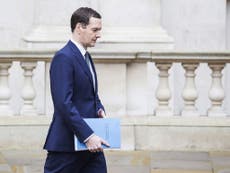Autumn Statement: What’s the vision? With George Osborne, it varies with the economic weather
Osborne’s policy ambitions have become much greater, commendably so


The Chancellor who has scrapped his plans to cut tax credits for the working poor and to impose the axe on police spending is a different Chancellor from the one who unveiled his brutal Budget this summer – more balanced and reasonable.
The U-turns are simultaneously spectacular and wise. Any tinkering on the tax credits would have cost as much money as he had hoped to save and created other losers. But the apparent ease with which the policy was reversed raises the question of why George Osborne was so determined to press ahead in the first place. Similarly, the U-turn on planned police cuts is sensible and, after the terrorist attacks on Paris, politically unavoidable. But why was Osborne contemplating further sweeping cuts?
Senior police officers had feared wholly impractical and dangerous reductions of up to 40 per cent until the terrorists struck in Paris. In some of his more austere manifestations, Osborne continues to believe that public services can improve with big spending cuts. But when faced with reality, he sensibly reconsiders or is forced to recognise that spending cuts can sometimes undermine public provision. Wisely, he has also provided £6bn more for the NHS from next year when he had intended to spend less at this phase of the parliament.
The more balanced Osborne pulls off his partial metamorphosis largely on the basis of revised projections from the Office for Budget Responsibility. Suddenly, forecasts for tax revenues are higher and debt interest payments considerably lower. In effect, the Chancellor has banked the forecasts now on the assumption they will prove to be right. In the short term, he will borrow more than he had planned. He has also made some brave tax rises. And the new flexibility has not caused an earthquake.
It is when Osborne is more rigid that the volcano erupts. Only 12 months ago, he had happily projected far deeper cuts in spending, so much so that even the OBR described his plans as a “rollercoaster”, an uncharacteristically evocative image from the linguistically cautious body. By the time of the election Osborne had “revised” those plans so they oscillated less wildly. In July, he was wielding an axe more ruthlessly once again and got into big trouble. Now he is being less ruthless.
Partly, Osborne plays “tax and spend” political games in an attempt to catch out opponents only to find that he is the one who is sometimes caught out. Partly, he is obsessed with “balancing the books” as speedily as possible, even if his obsession threatens to damage the economy or his own reputation, at which point he becomes less obsessed.
Video: Osborne delivers 'big' review
Two wider questions arise from Osborne’s twists and turns. The first and most immediate is whether, even with his current, more balanced approach, he is planning to spend enough. Although the NHS gets more upfront cash than the Chancellor had originally planned, it must still find £20bn of “efficiency savings”. It is not at all clear how such savings can be made without undermining patient care.
Osborne smartly hypothecates a council tax rise, compelling local authorities to spend a 2 per cent increase on social care. The additional cash is unlikely to be enough to meet growing demand. More widely, budgets for councils are being cut savagely. Osborne is right to focus more on capital spending, but given the demand for affordable homes, the creaking railways and crammed roads, he needs to be more ambitious still.
The Chancellor’s many shifts of gear are part of the irrational way in which “tax and spend” decisions are made in the UK. Instead of asking what a relatively rich country wants from public services, and how it might pay for them, an eternal game is played out. “We won’t raise taxes! We will improve services and cut them!” The game has been played for decades.
But where is the more sane national debate. Do we want world-class healthcare and guaranteed care for the elderly? If so, how do we deliver the provision and pay for the additional cost? Do we want a modern transport system with affordable fares? If so, how do we deliver and pay for it? Instead, the number-crunchers at the Treasury rule, even if they choose to rule erratically.
Osborne’s policy ambitions have become much greater, commendably so. “We are the builders” is one of his new slogans. He continues to insist that “we are all in this together” and that his plans are “progressive”. He seeks a Northern Powerhouse. And yet he plans still to cut public spending in real terms over the next five years. To meet his objectives and to chime with his consensual tone, he will almost certainly have to revise spending upwards again. That he has done so now shows when Osborne is in a hole he can dig with a wider sense of purpose than that of merely saving his political skin.






Join our commenting forum
Join thought-provoking conversations, follow other Independent readers and see their replies